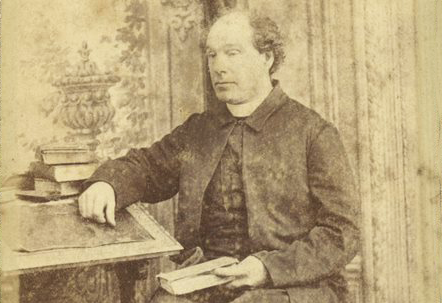
Ill health, travel, negative media reports, lack of support and apparent failure can all have an adverse effect on our wellbeing. Julian Tenison Woods was subject to all these.
Family history suggests he may have suffered a form of hereditary immune deficiency. He travelled extensively, was the subject of gossip and innuendo, appeared sensitive to real and imagined slights, and tried unsuccessfully to join several religious congregations. All this was more than enough to threaten his sense of wellbeing. So how did he remain so motivated, productive, and connected throughout most of his life?
In this time of a mutating pandemic, rolling lockdowns, conflicting advice, and restricted travel, there has been an avalanche of material on how to stay well. Among the plethora of suggestions, there are some constants: nourish your spiritual life through meditation, mindfulness, and times of quiet; exercise, preferably outside; get sufficient rest; maintain a healthy diet; exercise your brain with a variety of interests; and stay in touch with family, friends, and colleagues.
Julian was first and foremost a priest. Prayer and spiritual reading were important to him. His writings and retreats reveal the depth of his reflections on faith and creation.
From his earliest years, Julian spent time exploring outdoors. His later travels, often on horseback or on foot, and navigated by compass, have been well documented. We know little about his eating or sleeping habits, but it is highly unlikely either would meet today’s expectations. He used a saddle for a pillow when he slept under the stars, disliked French food, and did like strawberries.
His intellectual gifts and an insatiable thirst for knowledge helped fuel Julian’s energy. He was multilingual, played both sacred and secular music, read widely, wrote prolifically across genres, illustrating his own scientific works. His commitment to education led to his appointment as the first Director of Education in Adelaide, which encompassed South Australia and the Northern Territory.
His social connections crossed the sociological divide. He belonged to Royal Scientific Societies in Sydney and was President of the Linnean Society. As he visited his parishioners across the 200 square miles of the parish, he became part of their lives, no doubt fulfilling his priestly duties, baptising, marrying, reconciling, anointing, and celebrating Eucharist. He also played the piano while they sang and danced and made use of their libraries. He counted among his many friends Adam Lindsey Gordon, with whom he rode, quoting Shakespeare and sharing a love of poetry and the classics. He kept in touch, initially, with the Congregations he founded.
Priest, poet, scientist, scholar, Julian has been variously described as brilliant, enigmatic, eccentric, mercurial, magnetic, and curious. He often had reason to descend into depression or take to his bed, but it was his love of God and creation, his deep belief in his calling and his love of life and learning that enabled him to live life to the full. In his own words “Living in harmony with nature and with God gives us true happiness and purpose.” (1887)
Kristin Johnston rsj and Antoinette Baldwin rsj
